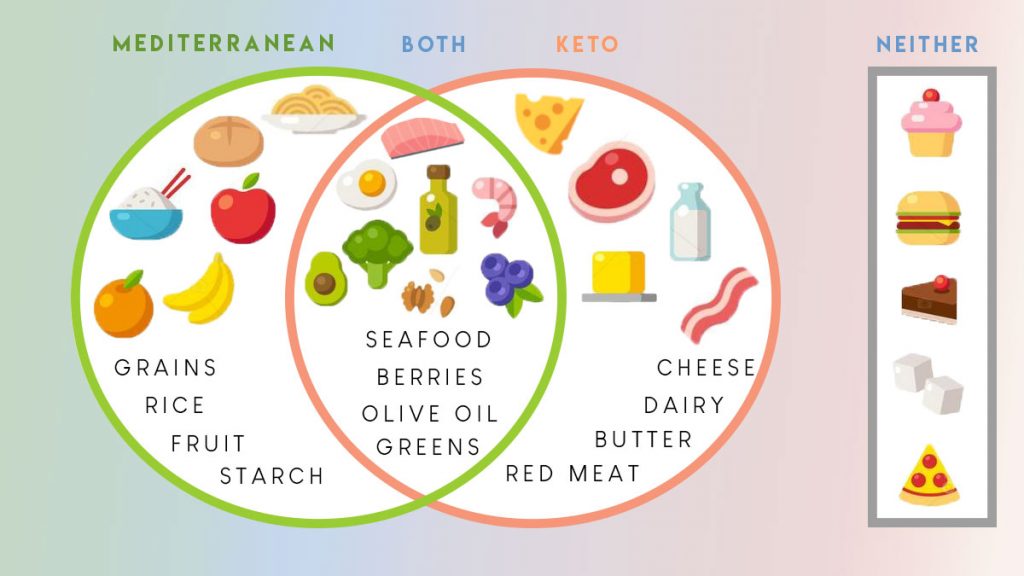Smart Ways to Enhance Your Mediterranean Keto Diet in 2025

Effective Ways to Optimize Your Mediterranean Keto Diet for 2025 Success

The Mediterranean keto diet harmonizes the benefits of healthy fats with the vibrant flavors of Mediterranean cuisine. As we move into 2025, it's essential to optimize this culinary path for sustained success in health and weight management. This guide aims to provide you with practical strategies and delicious meal ideas from the Mediterranean keto repertoire that align with contemporary dietary preferences.
Understanding the Mediterranean Diet Principles
To effectively implement a Mediterranean keto diet, it's vital to grasp the foundational principles of the Mediterranean diet. This lifestyle focuses on a variety of wholesome, nutrient-rich foods while minimizing processed items. Traditional Mediterranean meals emphasize seasonal ingredients, fresh vegetables, lean proteins, and healthy fats—principally from olive oil. Each nutrient plays a crucial role not only in creating flavorful dishes but also promoting health. For instance, the consumption of fish—a staple in the Mediterranean approach—provides omega-3 fatty acids, known for their heart health benefits and significant in a low-carb context.
The Role of Healthy Fats in the Mediterranean Diet
Using **healthy fats** is a central tenet of the Mediterranean lifestyle. The most notable source is **olive oil**, which has an unrivaled reputation for its health benefits. It's essential for both cooking and as a dressing for low carb Mediterranean meals. Beyond olive oil, other healthy fats such as avocado and nuts can also be staples. For example, avocado Mediterranean recipes not only elevate flavor but also boost the overall nutritional profile by adding fiber and potassium. Try roasting vegetables with olive oil and sprinkling nuts for a satisfying meal filled with healthy fats that align perfectly with both keto and Mediterranean principles.
Nutritional Benefits of Mediterranean Keto
The combination of the ketogenic approach and Mediterranean principles allows for crucial nutritional advantages. The Mediterranean keto diet is known to support weight management, and its emphasis on high fiber foods, like seasonal vegetables and lean proteins, enhances digestion and promotes feelings of fullness. Research indicates that people adhering to a Mediterranean diet experience lower rates of heart disease, certain cancers, and may even enjoy improved cognitive function, making this diet a holistic approach to healthy eating. Additionally, the high levels of **dietary fiber** found in Mediterranean meals contribute significantly to keeping blood sugar steady—a critical factor when pursuing a ketogenic lifestyle.
Delicious Keto Mediterranean Recipes
Implementing the Mediterranean diet into ketogenic recipes doesn't have to be challenging or lack variety. There are many keto Mediterranean recipes that can easily be prepared at home. These meals integrate healthy fats, proteins, and low-carb vegetables, satisfying cravings and nutritional needs.
Easy Mediterranean Keto Meals
When meal prepping for the week, consider simple yet delicious low carb Mediterranean meals. A perfect example would be grilled salmon drizzled with lemon and olive oil served over zucchini noodles. This grilled Mediterranean proteins dish is rich in omega-3s and low in carbs, fitting seamlessly into your ketogenic meal plan. Alternatively, Mediterranean salads for keto such as a Greek salad loaded with feta cheese, olives, and a variety of leafy greens topped off with a tangy dressing are delightful and refreshing.
Keto-Friendly Snacks and Appetizers
Snacks play a crucial part in any dietary regime, particularly to maintain energy levels throughout the day. Incorporating **low carb Mediterranean snacks** like marinated olives, cucumber slices with hummus, or **low carb Mediterranean appetizers** such as caprese skewers, can satisfy cravings between meals without derailing your diet. Consider creating platter arrangements that include a variety of **nuts in keto Mediterranean** variations to keep your snack options fresh and exciting. Implementing tasty snacks helps manage hunger and prevents fallbacks into unhealthy eating patterns.
Meal Prep Strategies for Success
When optimizing your Mediterranean keto diet, meal prep is your ally. This ensures consistent adherence to your dietary goals, especially during busy weeks.
Effective Meal Planning Techniques
To streamline your meal preparation, adopt the practice of meticulous **meal planning Mediterranean diet** focused on low glycemic index Mediterranean foods. One effective strategy might include setting aside time each week to create a list of recipes—prioritizing those with elements like **Mediterranean herbs and spices** integral for flavor. Cook in batch sizes and create portions that are easy to grab and reheat. This can include cooking a selection of proteins and roasting a medley of vegetables that can be added to **ketogenic Mediterranean lunches** throughout the week.
Shopping Tips for Grocery Lists
Knowing how to navigate your shopping for a Mediterranean keto diet can save you both time and resources. Creating a low carb grocery list rich in fresh produce, meats, fish, and healthy fats can be paramount. Look for **traditional dishes keto Mediterranean** to ensure you locate authentic ingredients that can replace higher-carbohydrate versions in recipes. Don’t forget to explore **ketogenic meal plan** ideas as part of your grocery shopping; finding **protein sources Mediterranean keto** like eggs, chicken, and grass-fed beef balances your macronutrients and keeps meals satisfying and flavorful.
Key Takeaways
- Emphasize healthy fats from sources like olive oil, avocados, and nuts.
- Create a diverse range of **keto Mediterranean recipes** that allow for culinary flexibility.
- Prioritize meal prep to ensure adherence to **Mediterranean diet principles**.
- Incorporate a variety of seasonal vegetables and lean proteins into your diet.
- Leverage snacks and appetizers to boost energy and minimize cravings.
FAQ
1. What are the benefits of following the Mediterranean keto diet?
The benefits of a **Mediterranean keto diet** are vast, including weight management, improved heart health, and the nutritional richness associated with sustainable eating patterns. This way of consuming not only promotes a lower carbohydrate intake but also integrates high-quality fats and essential nutrients found in Mediterranean dishes.
2. How do I adapt traditional Mediterranean recipes to be keto-friendly?
Adapting traditional Mediterranean recipes to be keto-friendly involves substituting higher carbohydrate ingredients with lower-carb options. For instance, replace pasta with spiralized zucchini or incorporate more non-starchy vegetables. Additionally, emphasizing fats from sources such as high-fat dairy, olive oil, and nuts will help maintain the essence of the Mediterranean flavors while adhering to ketogenic criteria.
3. What are some easy Mediterranean keto breakfast ideas?
For quick and satisfying breakfasts, consider options like omelets made with seasonal vegetables and feta or Greek yogurt topped with nuts and seeds. **Savory Mediterranean breakfasts** provide heartiness, plus incorporating protein ensures you kickstart your day while staying aligned with your low carbohydrate goals.
4. Are there specific fish varieties good for a Mediterranean keto diet?
Yes! Fish such as salmon, mackerel, sardines, and tuna are emphasized in the diet due to their high-fat content, particularly omega-3 fatty acids, making them ideal choices for a **Mediterranean diet for weight loss**. These fish not only provide healthy fats but also support overall well-being.
5. How can I find low carb Mediterranean foods at the grocery store?
When searching for low carb Mediterranean foods at the grocery store, look for whole, unprocessed options. Focus on fresh vegetables, lean proteins like chicken and fish, and healthy fats, primarily olive oil. Reading labels for sugar content is essential, as many processed foods harbor hidden carbs. Aim for whole foods for a more nutritious diet aligned with Mediterranean and ketogenic principles.